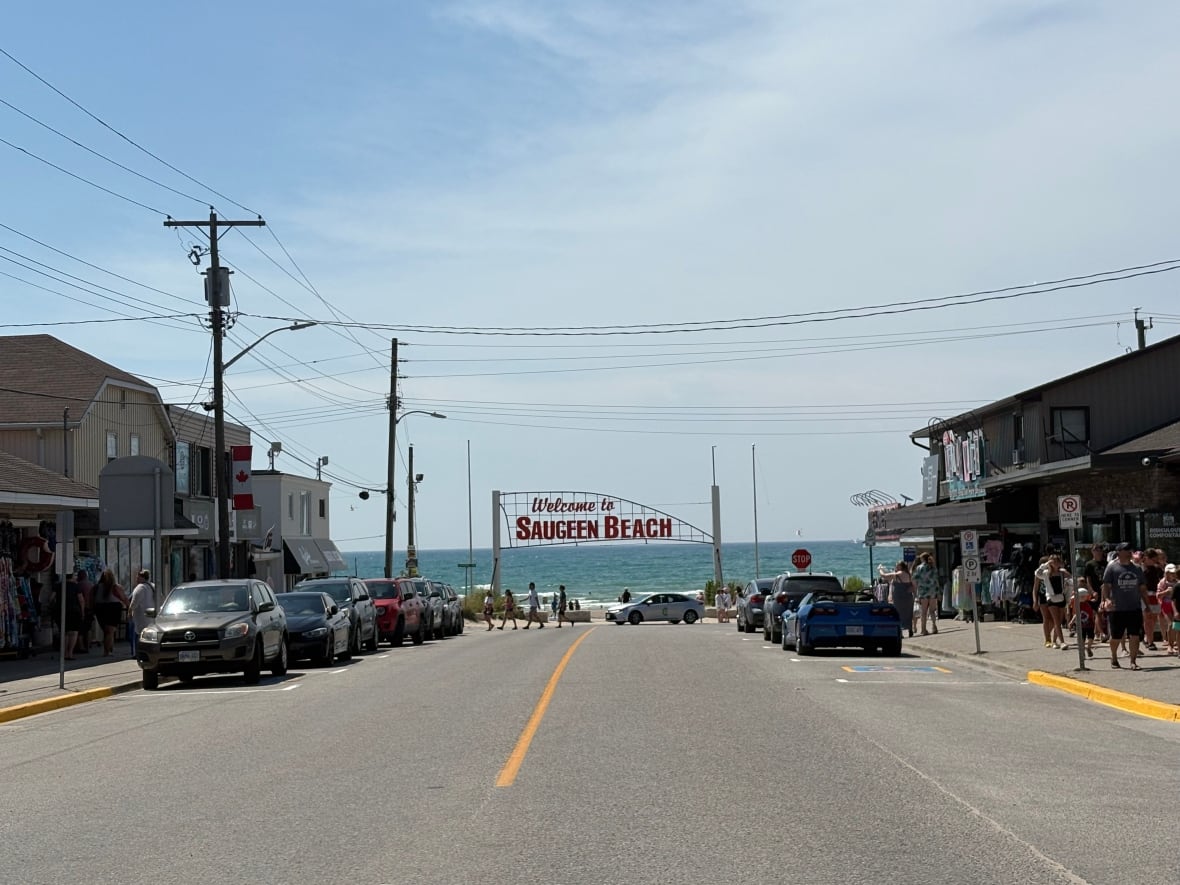Will Canada's top court weigh in on a treaty dispute over this Ontario beach? Decision coming today
Two months since the welcome sign of a popular Ontario beach town came down in the night, Canada's top court will decide today whether it will weigh in on a complicated legal case involving an Indigenous group's claim to a disputed strip of beach.
The Supreme Court of Canada is expected to announce whether it will hear an appeal in the case, which involves a section of Lake Huron shoreline located three hours north of London.
The courtroom fight over the beach became front and centre over the Canada Day long weekend when the sign that welcomes visitors to the town of Sauble Beach was removed by members of Saugeen First Nation. A new sign reading, "Welcome to Saugeen Beach" emerged in its place.
The sudden sign switch came in response to a 2023 Ontario Court of Appeal ruling that granted the Chippewas of Saugeen First Nation possession of a section of beach that includes land owned by the Municipality of South Bruce Peninsula and lots owned by a handful of private landowners.
The town and landowners' appeal of the 2023 decision was dismissed by another court decision in late 2024. Now the town, the landowners and the Ontario government are asking Canada's top court to hear their appeal.
South Bruce Peninsula Mayor Jay Kirkland said past court battles and the sudden sign switch have created a confusing fog over the beach ownership that only the Supreme Court can clarify.
"There's confusion," said Kirkland. "It's an iconic sign that people and their grandparents grew up with."
Kirkland said he's regularly asked what the sign change will mean for the future of Sauble Beach, a town that since the 1920s has drawn crowds of summer tourists to its clear blue waters and pristine sandy shoreline.
Sauble Beach remains the official name of the town.

"People outside of Sauble Beach think that Sauble Beach is not there anymore," he said. "But Sauble Beach is still Sauble Beach. The portion of the sand is what is in question."
The conflicting claims stretch back to a survey of the beach that was done in 1855, a year after the Crown signed a treaty that set aside reserve lands for Indigenous people in the area.
In its 2023 decision, the Ontario Court of Appeal agreed with Saugeen First Nation that the survey incorrectly left out 2.2 kilometres of shoreline from land that was promised them in the treaty.
In their submission to the Supreme Court, the municipality and landowners argue the decision will dispossess them of property that was "acquired lawfully and in good faith."
They further argue the Saugeen/Sauble case is a chance for the Supreme Court to clarify how competing interests should be addressed in similar land disputes involving Indigenous groups in Canada.
They say the case-by-case approach is creating a disjointed process.
"[This case] underscores the risks of imposing novel, judge-made solutions that, while well-intentioned, risk sowing uncertainty and unpredictability at the core of Canada's system of private landholding," their submission says.
To meet the bar for the Supreme Court to hear the appeal, the case has to be considered of national importance and address issues left unresolved by lower-court decisions.
Nuri Frame, a lawyer representing the Saugeen, argues the case doesn't have wide-ranging implications for other land disputes involving Indigenous groups. Instead, he said, the case is limited to how the language that defined the reserve lands in the 1854 treaty is interpreted.

"This is not a case about Aboriginal title," Frame told CBC News. "It is a case about ensuring the treaty boundaries that were expressly agreed to in 1854 are reflected on the ground and that Saugeen's reserve lands are maintained in the form that was agreed to in the treaty.
"This is about whether or not the Crown is able to dispossess the Saugeen of reserve land that was promised to them."
Whether or not the Supreme Court hears the case, Kirkland hopes the town and Saugeen leadership can find a way to work together to share the beach.
He said the sign's sudden removal with no advance notice left many in the town feeling blind-sided. Kirkland said he's still waiting for the original sign to be returned.
"We've always maintained that we want to work co-operatively," he said. "We still want to talk and work in conjunction with First Nations."
The Supreme Court's decision on whether it'll take the case is expected to be released before 10 a.m. ET.
cbc.ca




